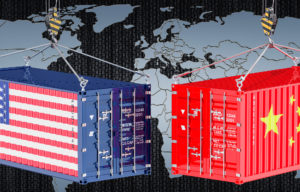News & Insights
U.S. State Department Publishes CCATSA Section 231 Entity List and Guidance: Sanctions against U.S. and Foreign Persons Loom on the Horizon in 2018
On October 27, 2017, as required by the Countering America’s Adversaries Through Sanctions Act (“CAATSA”), the U.S. State Department published a list of 39 entities that are part of (or operate on behalf of) Russian defense or intelligence sectors, as well as formal guidance about the forthcoming sanctions anticipated in 2018. Section 231 of the CAATSA requires the President to impose five or more sanctions (selected from a laundry list of available sanctions) on U.S. or foreign persons who knowingly deal with the listed Russian entities. Beginning on January 29, 2018, the sanctions selected by the President will be imposed against any person that engages or has engaged in a “significant transaction” with a listed entity (e.g., certain exports and reexports of defense articles and services, as well as civilian goods and services) since August 2, 2017. CCATSA’s objective is to financially isolate the Russian defense and intelligence sectors. U.S. and non-U.S. companies dealing in Russia should consider the following key take-away’s—
(1) Future CCATSA sanctions may be imposed against foreign persons for activities undertaken wholly outside of the United States where there is no nexus to the United States.
(2) Most of the listed entities are already designated on either the Specially Designated Nationals (“SDN”) List or the Sectoral Sanctions Identification List (“SSIL”) enforced by the Treasury Department’s Office of Foreign Assets Controls (“OFAC”).
(3) The State Department’s published guidance notes that whether a transaction will be considered a “significant transaction” under Section 231 will depend upon the totality of facts surrounding the transaction and weighing of various factors on a case-by-case basis; however, transactions involving goods or services destined for civilian end-users and end-uses that do not involve the Russian intelligence sector “will weigh heavily against” a determination that the transaction is significant.
(4) OFAC’s SDN and SSIL restrictions apply to the parties identified on those lists as well as to any party that is owned 50% of more by a listed party; however, the State Department’s published guidance make no mention as to whether CCATSA sanctions will also apply to unlisted Russian parties that are owned or controlled by entities designated on the newly created list.
(5) The State Department’s published guidance states that if a transaction is necessary for compliance with the rules and regulations administered by the FSB (e.g., transactions related to the importation/distribution/use of IT products in Russia that feature cryptographic functionality, payments of fees, submissions of applications for licenses and permits, submissions of required notifications, etc.) will “weigh heavily against” a determination that the transaction is significant.
(6) Companies doing business in Russia or testing the waters in that country should closely monitor the sanctions that will be imposed pursuant to Section 231 of the CCATSA, review the State Department’s new list of entities subject to the CCATSA sanctions, and review the State Department’s published guidance.
If you have any questions pertaining to the CCATSA, other U.S. embargoes and economic sanctions programs, or international trade issues, please contact Melissa Proctor at Miller Proctor Law PLLC (melissa@millerproctorlaw.com).
News & Insights

USTR Publishes Specific Exclusion Request Process for the List 2 Tariffs against China
[September 18, 2018] Earlier today, the USTR published a Notice and Request for Comments in the Federal Register with respect to the product specific exclusion request process for the Section 301 tariffs that went into effect on August 23, 2018.

Companies May Begin Submitting Their Product Exclusion Requests for List 3 Goods on June 30th
Today, the USTR published a Notice in the Federal Register outlining the deadlines and procedures for requesting exclusions for specific products from the tariffs imposed upon certain Chinese-origin products imported into the United States (i.e., the List 3 goods) under


